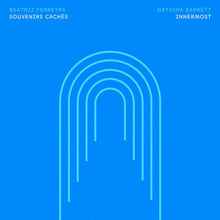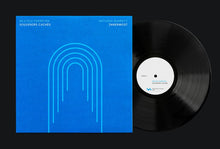Persistence Of Sound / UK / 2021
It would be hard to find a better-suited combination of contemporary acousmatica on one record. Beatriz Ferreyra and Natasha Barrett are known for their intense exploration of the movement of sounds through space.
Ferreyra has been at the cutting edge of developments in acousmatic music and sound morphology since she joined Pierre Schaeffer’s small team of researchers in his tape experiments at the GRM Paris studios in 1963. She continues to compose and perform internationally.
Schaeffer’s concept of ‘allure’ (the unique quality of any sound according to how it behaves) features as an influence in Barrett’s development of the concept of the ‘gait’ of her sounds, identified by how they move, change shape and occupy space rather than by their source. Her multi-dimensional installations and concerts have featured in museums and festivals globally since the 1990s.
Ferreyra and Barrett share an interest in musique concrète over pure electronics. Ferreyra prefers the ‘aliveness’ of natural or environmental sound recordings, and Barrett talks of ‘hovering in that point between something from the real-world and the totally abstract.’
Both composers focus on recreating the most natural listening experience possible during performance. For Barrett, this is a question of using higher order ambisonics (the encoding or recording of spatial information which is then decoded across multi-loudspeaker configurations). For Ferreyra, it is a question of playing her stereo recordings live from the mixing console across eight or more loudspeakers depending on the space.
Ferreyra has been at the cutting edge of developments in acousmatic music and sound morphology since she joined Pierre Schaeffer’s small team of researchers in his tape experiments at the GRM Paris studios in 1963. She continues to compose and perform internationally.
Schaeffer’s concept of ‘allure’ (the unique quality of any sound according to how it behaves) features as an influence in Barrett’s development of the concept of the ‘gait’ of her sounds, identified by how they move, change shape and occupy space rather than by their source. Her multi-dimensional installations and concerts have featured in museums and festivals globally since the 1990s.
Ferreyra and Barrett share an interest in musique concrète over pure electronics. Ferreyra prefers the ‘aliveness’ of natural or environmental sound recordings, and Barrett talks of ‘hovering in that point between something from the real-world and the totally abstract.’
Both composers focus on recreating the most natural listening experience possible during performance. For Barrett, this is a question of using higher order ambisonics (the encoding or recording of spatial information which is then decoded across multi-loudspeaker configurations). For Ferreyra, it is a question of playing her stereo recordings live from the mixing console across eight or more loudspeakers depending on the space.




